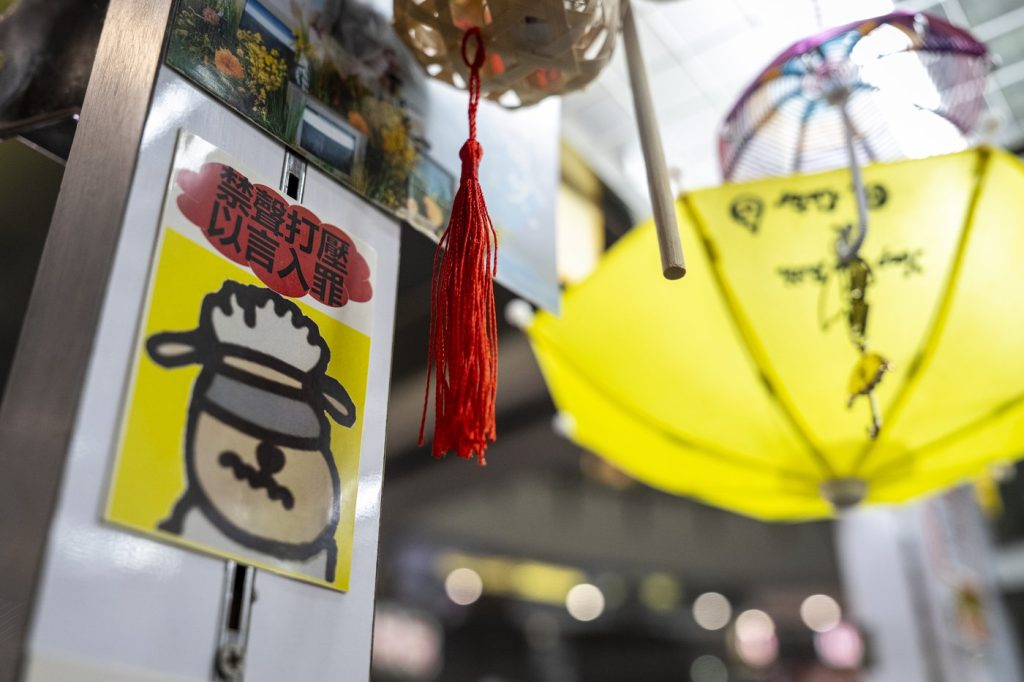HONG KONG (AP) - Years after mass arrests significantly suppressed pro-democracy activism in Hong Kong, a continuing crackdown on dissent now extends to small businesses, including restaurants and bookstores. These establishments, often associated with pro-democracy activists, are facing heightened scrutiny through intensified government inspections, anonymous complaints, and various regulatory checks.
Many critics argue that this represents a less visible aspect of a systematic effort to silence dissent which began in earnest in 2019 when Beijing imposed a national security law aimed at quelling challenges to its authority. This law has led to the imprisonment of opposition politicians and the closure of prominent pro-democracy media outlets like Apple Daily. In 2024, Hong Kong introduced its own national security law, which has been utilized to criminalize relatively innocuous actions, such as writing pro-independence messages on bus seats and wearing protest-themed apparel.
In recent weeks, regulatory authorities have warned restaurants that their business licenses could be revoked under the pretext of potentially endangering national security or public interest. Leticia Wong, a former pro-democracy district councilor who now operates a bookstore, reported that her shop is regularly visited by various government inspectors due to complaints, especially around significant dates such as June 4, the anniversary of the Tiananmen Square massacre. Records indicate her business faced intervention by authorities 92 times between July 2022 and June 2025.
Wong's bookstore has undergone numerous inspections and faced enforcement actions for minor infractions, prompting her to thoroughly study regulations to avoid further issues. Similarly, other small business owners have shared experiences of increased inspections since engaging in pro-democracy activities. For instance, a bakery that previously displayed pro-democracy decorations saw its inspections shift from quarterly to monthly, largely due to complaints about product labeling.
Many owners express confusion and fear regarding the new licensing conditions tied to national security, as they are uncertain about what could constitute a violation. One restaurant owner indicated that any misstep could jeopardize their employees' livelihoods. Food authorities claim that their inspections are in line with legal requirements and that the new conditions are clearly defined, assuring that law-abiding businesses will not be adversely affected.
Anonymous complaints have also resulted in lost business opportunities for several individuals. Wong recounted how a planned event at her bookstore was canceled following the receipt of an anonymous letter aimed at discouraging participation. She also lost freelance work when a funder prohibited hiring her without justification, and her landlord received similar anonymous warnings against renting to her. Wong articulated her feelings of being systematically ostracized and struggling to navigate difficulties imposed by the government machinery.
Chan Kim-kam, another former district councilor, expressed her own challenges, detailinghow she lost employment opportunities after institutions she was associated with received adverse anonymous letters. The aggressive culture of reporting seems to erode the trust between individuals within the community, according to Kim-kam.
In response to the criticisms, Hong Kong Chief Executive John Lee contends that the security law is a vital tool to maintain the rule of law, emphasizing it targets only a marginal segment of the population—to date, around 332 individuals have been arrested over national security violations, representing a small fraction of total police arrests. Despite this assertion, the implementation of national security guidelines continues to broaden scrutiny of ordinary residents, suggesting a shift from targeting select individuals to encompassing a wider population.
Eric Lai, a Georgetown Center for Asian Law research fellow, expressed concern that Hong Kong’s use of regulatory processes to control dissent lacks sufficient checks and balances. He noted that the situation resembles methods employed in authoritarian regimes, where harassment of dissenters occurs frequently without formal charges. As public trust erodes, so does the perception of Hong Kong's commitment to upholding the rule of law, which critics argue has become merely a facade masking oppressive governance.
On June 12, members of the pro-democracy League of Social Democrats protested legal actions taken against them, decrying the contradiction between the claimed rule of law and the reality of silenced voices. In an emotional announcement, the party disclosed plans to dissolve amid overwhelming political pressure, with its chairperson articulating dismay at the evolving character of resistance and dissent in Hong Kong.










